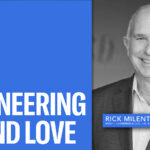By Chris Miller, Founder + Head of Performance, Mabl
Two generations are stepping up and reshaping workplace culture as we know it. The new dynamic duo—Millennials and Gen Zers—are unabashedly turning the tables on outdated work practices, pushing for change that not every generation is ready to embrace.
When the line “OK, Boomer” manages to make it all the way to the Supreme Court, it’s clear that the generational tension between Boomers and their successors is all too widespread. But did our more seasoned generation really pioneer the work culture woes Gen X leaders are now struggling to let go of, or were Boomers merely “Patient Zero”—dutiful workers dedicated to a paycheck, who followed in the footsteps of their Great Depression-era predecessors, and unfortunately never bothered (or wanted) to challenge the status quo?
Once the backbone of our businesses, Boomers are now a meager 15% of today’s workforce, with Gen X and Millennials each holding over a third, and Gen Z nearly on par with their Boomer counterparts. The modern workplace has evolved dramatically over recent years, but not all of its workforce has been able to keep up. Saddled with a stereotype of resisting change, clinging to rigid hierarchies, being married to the job (What work-life balance?), rejecting remote work flexibility, resisting tech (Who needs Slack when you’ve got a fax?), and an attachment to in-office meetings (Please make them stop!), Boomers have struggled to adapt to a rapidly changing culture and find their footing with the “whippersnappers” who report to them.
Opposites may attract, but if so, someone definitely missed the memo. Far from narrowing the divide between the groups, generational differences are driving a wedge in today’s workplace. Boomers are being dismissed outright by Millennials and Gen Zers as the old guard who can’t retire soon enough. Meanwhile, Millennials are dubbed as the narcissistic “Me Me Me Generation” hooked on self-care, while Gen Z is labeled as lazy and demanding. Grateful not to be part of the intergenerational drama, the “Latchkey Generation” (Gen X) is simply trying to keep the peace and survive until retirement, which is par for the course considering they basically raised themselves. And, though mostly retired, the Silent Generation’s legacy of discipline and loyalty lives on.
The unfortunate truth is: each generation has invaluable insights to offer the other, but if unhelpful stigmas and preconceived notions aren’t set aside, each may miss their chance to understand and benefit from the other.
THE CYCLE STOPS HERE
An estimated 35 to 40 million workers are expected to quit their jobs this year alone (That’s 3.3 million a month), making good management the much-needed linchpin for employee engagement and retention. The younger generations, namely Millennials and Gen Zers, are requiring more from their employers—more work-life balance, more effective leadership (think “coaching”—not “bossing”), and more purpose in their position. Add in their demand for a positive, inclusive work culture that takes into account their mental and physical well-being as a non-negotiable priority, and you have a very different work environment than the one Boomers spent decades upholding.
Unlike Boomers, who were taught to keep their heads down and their mouths shut, younger generations have refused to turn a blind eye to unhealthy work practices that come at the cost of their well-being. Can you blame them? Shouldn’t we all prioritize our mental and physical health over a paycheck?
Whatever the truth may be about who made toxic work culture what it is today, the power duo that’s predicted to make up two-thirds of the workforce within the next few years—Millennials and Gen Z—has no plans of perpetuating the cycle.
THE NEW DYNAMIC DUO IS HERE AND IT’S THRIVING
With each generation having different wants and needs, only two stand out for getting along in the workplace, like a Boomer and their PowerPoint presentation.
The two generations? Millennials and Gen Z.
When it comes down to creating an environment that’s not going to send Gen Zers silently quitting or running to therapy, Millennial leaders arguably have the upper hand and may just be our best chance at keeping Gen Z engaged.
Why? Because Millennials and Gen Zers share many of the same struggles and the same “trifecta” of values:
- THEY’RE DETERMINED TO MAKE A POSITIVE IMPACT: Millennials and Gen Zers may want to see their workplaces changed for the better, but even more than that, they want to have a positive impact on society. They’ve seen the cost of settling for the status quo, and they’ve all but tossed that dusty playbook right out the proverbial window.
- THEY UNDERSTAND THEIR WELL-BEING NEEDS TO BE A PRIORITY: When it comes to their well-being, 34% of Millennials and 40% of Gen Zers report chronic struggles with their mental health. Anxiety is at an all-time high for both generations, so having a manager who can lead with empathy (something Millennials excel at) can make all the difference.
- THEY NEED MEANINGFUL WORK: Since their job is a significant part of their sense of identity, neither generation wants to simply pay their dues—they need to feel a sense of purpose in their work. Having their company’s values aligned with their own is a significant step towards job satisfaction for them both.
- THEY CHAMPION SIMILAR WORLDVIEWS: While Gen Z may be more ethnically and racially diverse than Millennials (or any other generation we’ve seen), both generations share similar outlooks when it comes to family values, sustainability, equality, and racial justice.
- THEY’RE STRUGGLING WITH FINANCIAL SECURITY: Despite seeking financial stability, 60% of Millennials and Gen Zers are living paycheck to paycheck. The stress of barely getting by isn’t just making paying the bills a challenge—it’s affecting their mental health and, in turn, their ability to find their job fulfilling.
- THEY CRAVE RECOGNITION AND MENTORSHIP: Millennials and Gen Zers value motivational leaders who make them feel seen, who are generous with their time and quick to offer positive reinforcement. Helping these generations develop their skillsets with coaching could make the difference between them silently quitting or flourishing on the job.
BYE BOOMER MINDSET…HELLO NEXT-GEN LEADERSHIP
Amidst our own appeals for inclusivity, do we really want to be ageist? So, as tempting as it may be to say “Bye, Boomer” to an entire generation that’s carried on a work culture we’d love to leave behind, it’s not the Boomers we want to clock out, but the rigid mindsets that resisted much-needed change.
With six—yes, six—generations in today’s workforce that bring different perspectives, expectations and needs to the table, is creating a workplace that brings collective success even possible? Addressing the widely varying perspectives, the global analytics firm Gallup suggested we stop the futile cycle of trying to smooth over the differences and instead…address them head-on.
Partnering with the London School of Economics, one consulting firm recently released a report that showed that employees who had managers who were more than 12 years their senior were nearly 150% more likely to struggle with their productivity, all because the workers couldn’t work together effectively.
Incredibly, the same report found that workplaces that successfully adopted intergenerational work practices experienced a dramatic decrease in low productivity and a nearly 150% increase in employee retention. If you’re wondering what it looks like for a company to commit to intergenerational inclusivity, it means creating a generationally diverse workplace where each generation feels seen, where employee skills are nurtured and developed, and where merit alone (rather than age) determines advancement.
Like it or not, we need all generations at the table—the decades of life and work experience that Boomers and the Silent Generation bring, the pragmatism and adaptability of Gen X, the empathy and mentoring of Millennial leaders, and the tech-savvy skills that come so effortlessly to Gen Z.
Together, Millennials and Gen Zers are overhauling our culture as we know it. Thanks to them, Generation Alpha is about to inherit a revolutionized workplace that’s far better than what came before.











